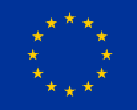Press Information
February 20, 2008
Philips led HeartCycle project targets improvement of disease management and quality of life for heart patients
Amsterdam, the Netherlands - Royal Philips Electronics today announced that it will lead a new European Union (EU) funded research project aimed at improving the disease management of heart patients through the development of innovative telemonitoring solutions. Following the highly successful MyHeart project, the HeartCycle project will start on March 1, 2008, and will be one of the largest biomedical and healthcare research projects within the EU.
The earlier MyHeart project developed advanced telemonitoring technologies and service concepts to enable people to play an active role in maintaining their health. In the course of the MyHeart project, home-based disease management was identified as a potential opportunity for improving medical standards of care. The HeartCycle project aims to extend this disease management concept for specific patient groups with a focus on improving patient compliance to medication and lifestyle therapies.
Public and private partners from 18 research, academic, industrial and medical organizations from nine different European countries and China will team up in the project. HeartCycle will run for four years and has a budget of around 20.7 million Euro, of which 14.1 million Euro will be funded by the European Union as part of the EU 7th Framework Program.
Cardiovascular disease kills around 1.9 million people every year in the EU, with the associated annual health costs estimated at 105 billion Euro. Around half of these deaths are coronary heart disease patients, the majority of whom will have required significant periods of hospitalization to treat progressive heart failure. There are currently around 10 million heart failure patients in the EU. Finding better ways to manage and treat coronary heart disease and chronic heart failure is therefore seen as one of the most effective ways of reducing the human cost and financial burden of these debilitating conditions.
''The greatest challenge and opportunity for the management of long-term medical conditions is to help patients to help themselves,'' says Professor John Cleland MD, Head of the Department of Cardiology at the University of Hull (UK), current chairman of the British Society for Heart Failure and Chief Medical Officer of the HeartCycle project. ''Investing directly in people who need help, and not just in services that do things to or for them, makes sense in terms of improved care, greater affordability and the effective deployment of scarce nursing and medical resources.''
The HeartCycle consortium will work to improve the quality of care for coronary heart disease and heart failure patients by developing systems for monitoring their condition at home and involving them in the daily management of their disease.
These systems will comprise unobtrusive sensors built into the patients clothing or bed sheets and home appliances such as weight scales and blood pressure monitors. The consortium aims to develop dedicated software that analyzes the acquired data, and that can be programmed to provide feedback on the patients health status, plus his or her adherence to prescribed therapies and progress towards achieving health status milestones. It also aims to develop mechanisms to automatically report relevant data back to clinicians so that they can prescribe personalized therapies and lifestyle recommendations.
''By developing systems that remotely monitor heart patients and motivate them to adhere to treatment regimes and adopt beneficial lifestyles, we hope to improve the survivability of heart disease as well as to contain the overall cost of care,'' says Henk van Houten, senior vice president of Philips Research and head of the Healthcare Research program. ''The development of such systems can only be achieved efficiently via multi-disciplinary partnerships between hardware engineers, software engineers, textile manufacturers, industrial designers, clinical experts and healthcare providers, as is the case in the HeartCycle project.''
HeartCycle Consortium membership (in alphabetical order)
Aristotle University of Thessaloniki (Greece); Clothing Plus Oy (Finland); CSEM Centre Suisse D'electronique Et De Microtechnique Sa (Switzerland); Empirica Gesellschaft für Kommunikations und Technologieforschung mbH (Germany); Faculdade Ciencias e Tecnologia da Universidade de Coimbra (Portugal); Fundación Vodafone España (Spain); Hospital Universitario Clínico San Carlos (Spain); Instituto de Aplicaciones de las Tecnologías de la Información y de las Comunicaciones Avanzadas (Spain); Medtronic Ibérica SA (Spain); Philips Electronics Nederland B.V. (The Netherlands); Philips Research (Germany); Politecnico Di Milano - Dipartimento di Bioingegneria (Italy); Rheinisch Westfälische Technische Hochschule (Germany); T-Systems ITC Iberia SA (Spain); Universidad Politécnica de Madrid (Spain); Chinese University of Hong Kong (China); University of Hull (United Kingdom); Valtion Teknillinen Tutkimuskeskus (Finland).
For more information please contact:
Steve Klink
Communications Department Philips Research
Tel.: +31 40 27 43703
Mobile: +31 6 10888824
E-mail: steve.klink@philips.com
About Royal Philips Electronics
Royal Philips Electronics of the Netherlands (NYSE: PHG, AEX: PHI) is a global leader in healthcare, lighting and consumer lifestyle, delivering people-centric, innovative products, services and solutions through the brand promise of “sense and simplicity”. Headquartered in the Netherlands, Philips employs approximately 134,200 employees in more than 60 countries worldwide. With sales of EUR 27 billion in 2007, the company is a market leader in medical diagnostic imaging and patient monitoring systems, energy efficient lighting solutions, as well as lifestyle solutions for personal wellbeing. News from Philips is located at www.philips.com/newscenter.
 |
 |
The work leading to these results has received funding from the European Community's Seventh Framework Programme under grant agreement n° FP7-216695 |
